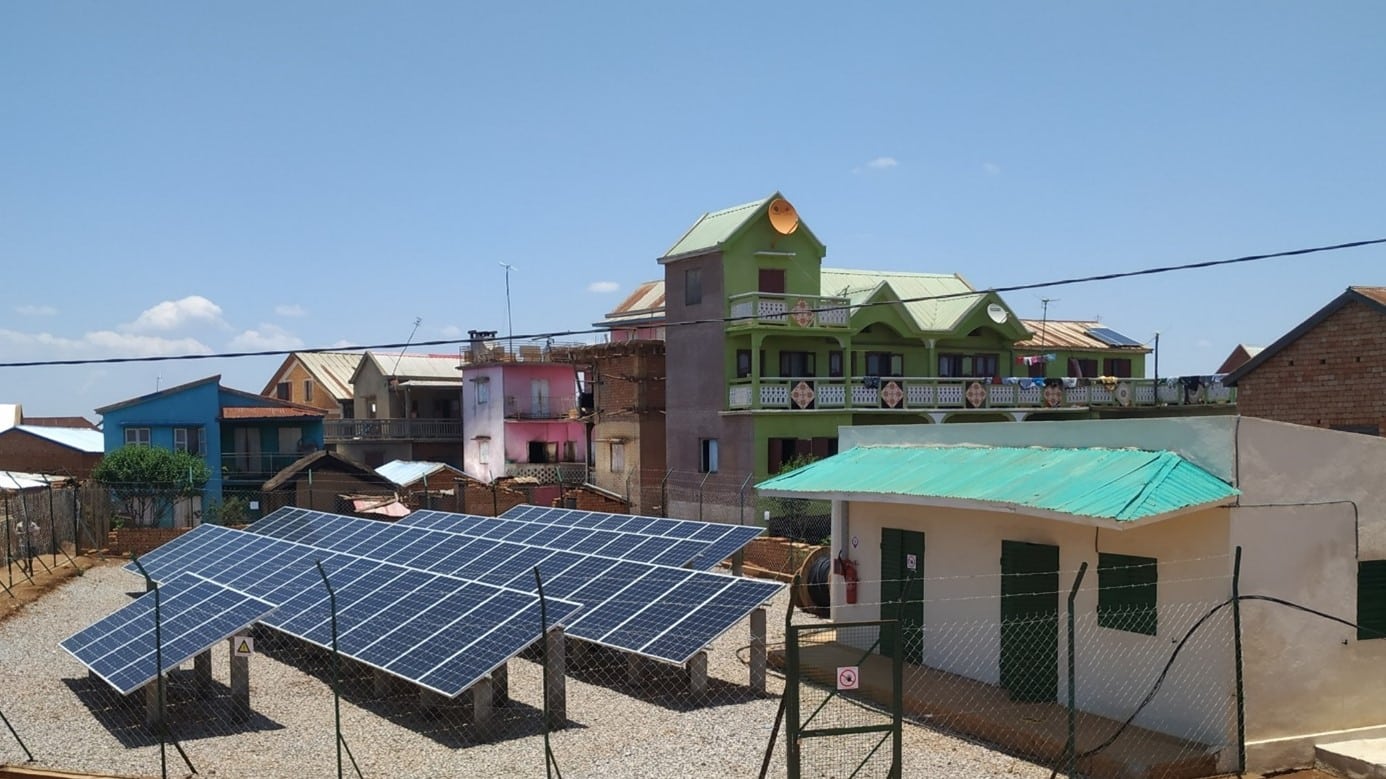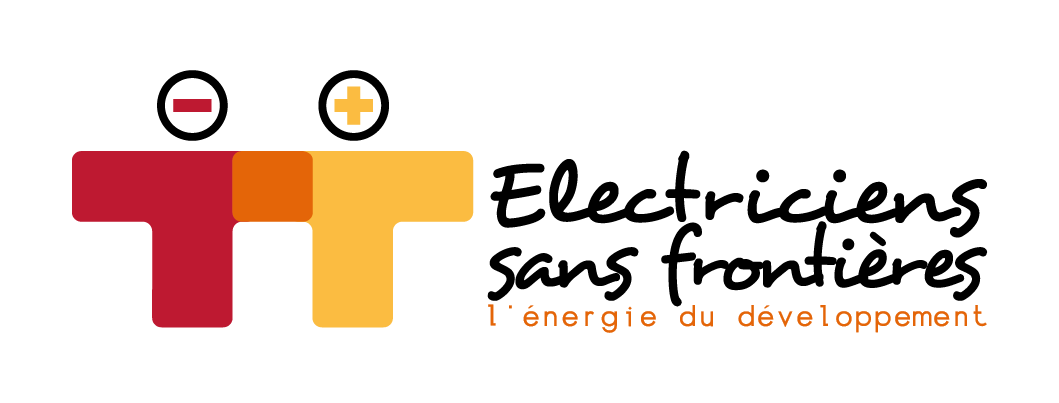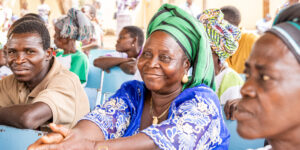Authors : Barès Serena and Berthelemy Jean-Claude

Distributed electrification outside national grids, by means of mini-grids, a generic term used here irrespective of their size (pico, micro, mini or small), is the main way of providing access to electricity for Africa’s rural population, and helping to achieve SDG7 (Sustainable Development Goal 7: Ensure universal access to reliable, sustainable and modern energy services at affordable cost). However, the mini-grid sector is making insufficient progress, with public decision-makers, both national and sometimes international, finding it difficult to take the decision to go to scale due to a lack of evidence of the sector’s impact – something that economists and evaluators have so far been unable to provide in this sector.
In four articles for Entreprenante Afrique, we present the Cafés Lumière mini-network project in Madagascar, the limitations of the standard evaluation carried out for accountability purposes, which does not provide any real evidence of impact, and various alternative ways of testing and documenting the socio-economic impacts of the project.
Madagascar’s Cafés Lumière: a shop, a reception area and a mini-network
The Café Lumière solution, created and developed from 2019 by Electriciens sans frontières, offers a shop in six villages in the Vakinankaratra and Itasy regions, coupled with a photovoltaic solar power plant secured by batteries and a generator.
The Cafés Lumière are unique in that they are both a mini-grid and a multiservice energy platform. In other words, the Café Lumière, which is usually located in the centre of a village, has a shop that offers services such as charging telephones and lamps, while supplying electricity to meet other local needs. The multiservice platform thus offers energy services and a welcoming space for productive activities wishing to benefit from electricity. The mini-grid provides electricity from the Café Lumière via local connections to households, businesses, public lighting and community services. Part of the electricity consumption of the latter is covered by a contribution levied on sales to other users, households and businesses.
Four fundamental principles govern the installation of Cafés Lumière:
- Guaranteed minimum access to a sustainable electricity service for all members of a rural community;
- Improving the quality of community services (particularly health and education services) by providing a minimum level of sustainable access to electricity;
- Contributing to the development of private productive activities;
- Contributing to a political and regulatory framework that enables local players to manage and maintain the Café Lumière facilities and service on a long-term basis.
The solution is based on a public-private partnership between Anka, the Agence de Développement de l’Électrification Rurale (ADER), the Structures Collectives de Gestion Mixte (SCGM) at village level and Electriciens Sans Frontières, the promoter of the solution.
Thanks to its presence in each of the villages concerned, the service provider is able to work as closely as possible with isolated rural populations, which means it can not only pass on relevant information and take action on the spot (operation and maintenance of facilities, sale of services, etc.). In addition, a remote monitoring system for energy production has been deployed, enabling the activity of the Cafés Lumière to be tracked. For all these reasons, it is an essential producer of monitoring and evaluation data for the project, producing monthly activity reports. The data is thus harmonised and detailed, making it possible to study the impact of the project.
The project was mainly financed by the French Development Agency (AFD) as part of the Sectoral Innovation Facility for Non-Governmental Organisations (FISONG) and its replication as part of an NGO Initiative Note (NIONG).
The Cafés Lumière therefore offer a sufficiently innovative solution, based on multiparty funding and whose objectives are in support of the SDGs, for the question of their implementation on a larger scale to be raised.
Standard evaluation for accountability purposes
Aid agencies use a standard approach to evaluating the proper use of funds and commission a report from an independent firm when the project is handed over. This report serves as the final evaluation of the project, as long as it complies with the usual rules of accountability.
This evaluation gives projective results and corresponds more to expected rather than observed impacts. In the case of an infrastructure project, the evaluation is carried out at a date close to the scheduled start-up of the equipment, which is far too early to observe the impacts that are expected in the medium or long term. This assessment certainly serves administrative objectives, but does not necessarily advance knowledge of the impact of projects on sustainable development objectives.
In the case of the Cafés Lumière, this initial analysis carried out for AFD concludes that there has been a significant impact on the living conditions of populations, particularly women, and on improving the quality of public services (education, access to health centres, public safety). The results of the focus groups highlight the considerable support provided by this project for economic dynamism and the development of income-generating activities. These results are encouraging and provide an initial indication of the momentum generated by Cafés Lumière. However, the evaluation, which was completed in January 2021, took place at a time when the complete Cafés Lumière projects had not all been finalised: the multiservice platforms had been opened for the 6 Cafés, but only 3 mini-networks were operational, of which only one had been operational for more than a year. The information base used was therefore too narrow, both in terms of its temporality and its geographical coverage, to lead to robust conclusions.
From a methodological point of view, these standard evaluations were hampered not only by the inadequacy of their timeframe, but also by the absence of a counterfactual. The standard evaluation of the Cafés Lumière carried out for the AFD does not attempt to compare the localities treated with other comparable localities that have not been treated. Electriciens sans Frontières had anticipated this need, however, by drawing lots for the 6 localities treated from a larger group of 12 localities in which baseline data on the socio-economic profile had been collected in collaboration with FERDI. The use of this survey framework, in itself costly, would certainly not have been relevant in 2020, and we will return to this in the fourth article in this series, as a second round of the survey in May 2023 is currently being processed. But in the meantime, other avenues of investigation have been pursued, combining the use of remote sensing data and Anka‘s activity reports.



